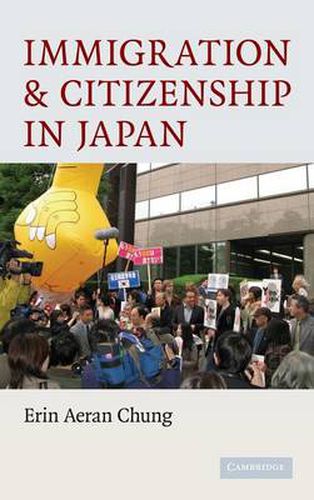Readings Newsletter
Become a Readings Member to make your shopping experience even easier.
Sign in or sign up for free!
You’re not far away from qualifying for FREE standard shipping within Australia
You’ve qualified for FREE standard shipping within Australia
The cart is loading…






Japan is currently the only advanced industrial democracy with a fourth-generation immigrant problem. As other industrialized countries face the challenges of incorporating post-war immigrants, Japan continues to struggle with the incorporation of pre-war immigrants and their descendants. Whereas others have focused on international norms, domestic institutions, and recent immigration, this book argues that contemporary immigration and citizenship politics in Japan reflect the strategic interaction between state efforts to control immigration and grassroots movements by multi-generational Korean resident activists to gain rights and recognition specifically as permanently settled foreign residents of Japan. Based on in-depth interviews and fieldwork conducted in Tokyo, Kawasaki, and Osaka, this book aims to further our understanding of democratic inclusion in Japan by analyzing how those who are formally excluded from the political process voice their interests and what factors contribute to the effective representation of those interests in public debate and policy.
$9.00 standard shipping within Australia
FREE standard shipping within Australia for orders over $100.00
Express & International shipping calculated at checkout
Japan is currently the only advanced industrial democracy with a fourth-generation immigrant problem. As other industrialized countries face the challenges of incorporating post-war immigrants, Japan continues to struggle with the incorporation of pre-war immigrants and their descendants. Whereas others have focused on international norms, domestic institutions, and recent immigration, this book argues that contemporary immigration and citizenship politics in Japan reflect the strategic interaction between state efforts to control immigration and grassroots movements by multi-generational Korean resident activists to gain rights and recognition specifically as permanently settled foreign residents of Japan. Based on in-depth interviews and fieldwork conducted in Tokyo, Kawasaki, and Osaka, this book aims to further our understanding of democratic inclusion in Japan by analyzing how those who are formally excluded from the political process voice their interests and what factors contribute to the effective representation of those interests in public debate and policy.